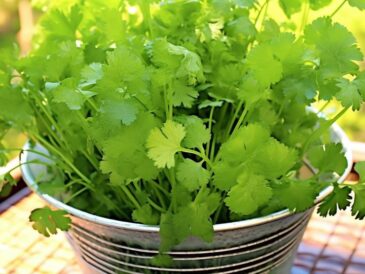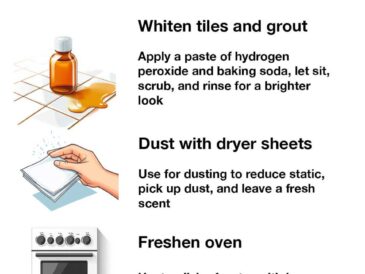Introduction: Why Proper Trellising is Essential for Growing Cucumbers
Cucumbers, with their crisp texture and refreshing taste, are a staple of summer gardens worldwide. Yet, without the right support, these vining plants tend to sprawl on the ground, leading to various problems: fruits rot from soil contact, plants become more vulnerable to pests and diseases, and you risk wasting precious garden space.
Vertical gardening with a well-designed trellis offers a practical and aesthetic solution. Not only does it maximize limited space, but it also promotes healthier plants and easier harvesting.
In this comprehensive guide, we’ll explore how to creatively reuse old table umbrellas as adjustable trellises, then dive into 19 different trellis designs suitable for cucumbers — from rustic DIY options to elegant garden installations.
Part 1: Repurposing Old Table Umbrellas as Adjustable Trellises for Pole Beans and Cucumbers
1.1 The Ingenious Idea: Upcycling Discarded Table Umbrellas
Every year, countless outdoor table umbrellas are discarded due to torn fabric or minor damages. But the metal or wooden frames underneath often remain sturdy and functional. These adjustable poles and ribs can be cleverly transformed into vertical supports for climbing plants like cucumbers or pole beans.
1.2 Step-by-Step Guide to Convert a Table Umbrella into a Trellis
- Remove the Fabric Canopy
Carefully detach the fabric canopy. Often it’s held with clips, velcro, or sewn seams. Take your time to avoid damaging the frame. - Clean and Inspect the Frame
Wash the frame with mild soap and water. If metal parts show rust, sand them lightly and apply rust-inhibiting paint to prolong durability. - Test and Lubricate the Height Adjustment Mechanism
Table umbrellas feature telescoping poles with locking mechanisms. Make sure the sliding parts move smoothly and securely lock into place. - Install the Frame in Your Garden
Drive the base pole firmly into the soil. For loose or sandy soil, consider adding stakes or concrete footings to prevent tipping.
1.3 Why Use an Old Table Umbrella Frame as a Trellis?
- Adjustable Height
You can set the height to suit young seedlings or mature vines. - Sturdy Construction
Built to withstand outdoor conditions, the frame is strong enough to support heavy plants. - Space-Saving Vertical Growth
Maximizes your garden’s productive area. - Cost-Effective and Eco-Friendly
Reduces waste and avoids buying new trellises. - Customizable and Stylish
You can paint or decorate the frame to complement your garden’s aesthetic.
Part 2: Why Cucumbers Thrive on Trellises
2.1 Growth Habit of Cucumbers
Cucumbers (Cucumis sativus) are climbing vines that use tendrils to latch onto supports. Without a trellis, they sprawl on the ground, which exposes fruits to dirt, pests, and disease.
2.2 Benefits of Growing Cucumbers Vertically
- Improved Air Circulation
Keeps foliage dry and healthy, reducing fungal diseases like powdery mildew. - Reduced Pest and Disease Incidence
Keeps fruits away from soil-borne pathogens and critters. - Easier Harvesting
Fruits hang at eye level, visible and easy to pick. - Space Optimization
Great for small gardens, urban patios, or container gardening. - Better Fruit Quality
Cleaner, straighter cucumbers with fewer deformities.
2.3 Effect on Yield and Plant Health
Vertical growth channels the plant’s energy into producing more and higher-quality fruit, instead of sprawling growth.
Part 3: Detailed Exploration of 19 Trellis Designs for Cucumbers
3.1 A-Frame Trellis
Structure: Two panels hinged at the top forming an ‘A’. Horizontal slats or wires provide climbing surfaces.
Construction:
- Use treated wood or bamboo for panels.
- Attach slats every 20-30 cm for support.
- Secure the base for stability.
Pros:
- Very stable and durable.
- Ample space for spreading vines.
- Easy to fold and store.
Cons:
- Occupies more ground space than some vertical options.
3.2 Ladder Trellis
Structure: Vertical ladder placed upright or slightly angled.
Construction:
- Repurpose old ladders or build from wood.
- Stabilize firmly in soil.
Pros:
- Harvest at eye level.
- Attractive rustic look.
Cons:
- May tip over if not properly secured.
3.3 Arched Trellis
Structure: Two curved supports forming an arch.
Construction:
- Use flexible bamboo or PVC pipes.
- Anchor securely.
Pros:
- Maximizes vertical space.
- Creates striking garden focal point.
Cons:
- Slightly complex to build.
3.4 Fence Trellis
Click page 2 for more




